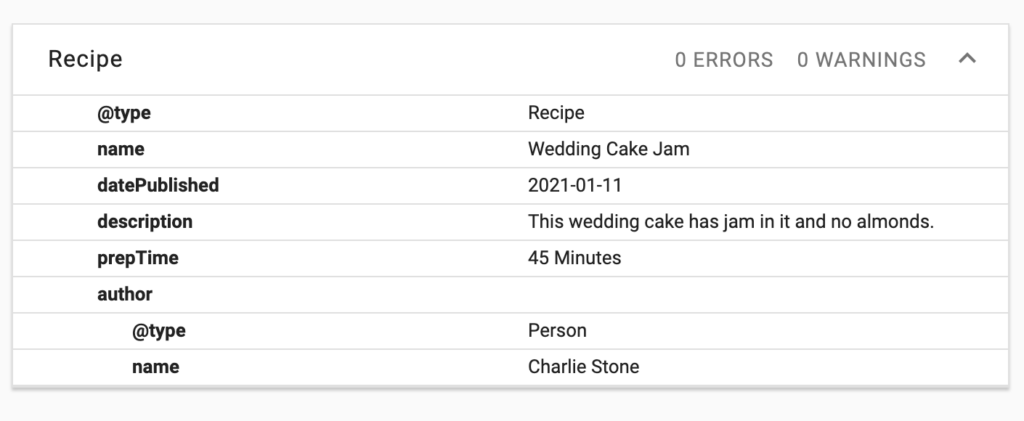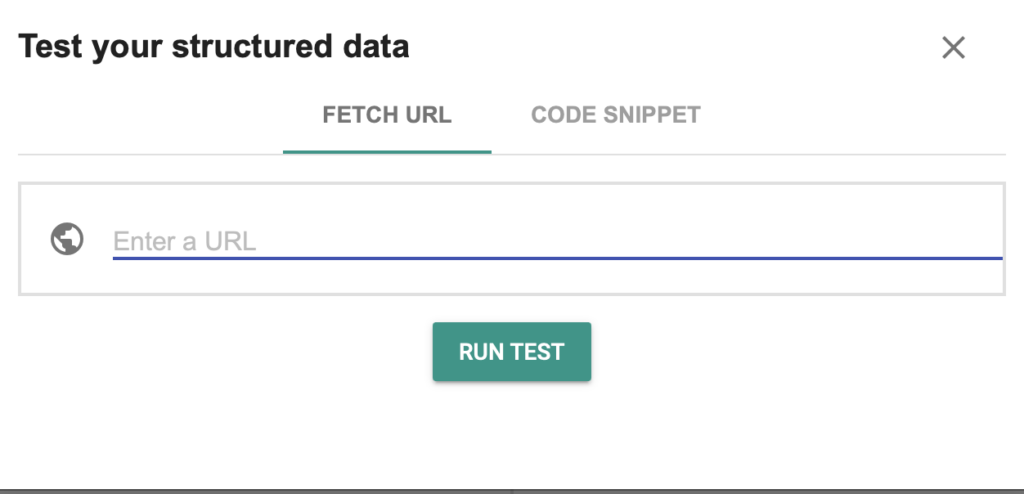How To Create Rich Snippets In WordPress And The 6 BEST Plugins For Adding It

When you buy something through one of the links on our site, we may earn an affiliate commission.
If you want to learn how to create rich snippets in WordPress, you're probably already aware of how important they are for the search engines to understand your content.
Adding rich snippets (structured data) to your website will allow the likes of Google and Bing to display your content to the right set of eye-balls.
Search engines love to use rich snippets, or rich results, as it's now called, because it helps those searching to understand what the content is about before they click on the result.
This post will show you how to create rich snippets in WordPress and tell you everything you need to know about them.
You'll discover:
- The real benefits of rich snippets and what they do
- Numerous ways to add them to your site
- The best WordPress plugins to add structured data
- The different types of rich snippets
- How to test for errors in your structured data
Once you have read the article, you'll be able to set them up on your WordPress blog without any problems.
Contents
What Are Rich Snippets?
Rich snippets are Google search results, but with snippets of information attached to them. They make the searcher more informed about the website (content) they are visiting.
Below is an example of search results without rich snippets:
And here's an example of a search result using the FAQ rich snippet:

As you can see, the search result with the rich snippet is more visually appealing and will very likely get a better click-through rate.
The above example uses the FAQ, rich snippets, but others can be used, such as a recipe, article, course, carousel, and many more.
Search engines understand which rich snippet to use by the structured data added to the content.
For example:
The image above shows results from a website that uses the FAQ structured data for that article. Google decided to use this result, and that's why the display has rich snippets attached.
There are numerous structured data codes that Google and other search engines recognize, and FAQ is one of them.
You can view the entire list on Google Search Central, but typically you have:
- Video
- Recipe
- Article
- Book
- Carousel
- How to
- Dataset
- Review
- And a few more.
Below is an example of structured data for a recipe:
{
“@context”: “https://schema.org/”,
“@type”: “Recipe”,
“name”: “Wedding Cake Jam”,
“author”: {
“@type”: “Person”,
“name”: “Charlie Stone”
},
“datePublished”: “2021-01-11”,
“description”: “This wedding cake has jam in it and no almonds.”,
“prepTime”: “45 Minutes”
}
You put the schema code in the head section of your website, and if the search engines use it, it will display the following information in the search results, in addition to the standard listing:

Again, it doesn't take a genius to see how this will produce more clicks to your website.
If you were to use the ‘review' structured data markup, then this is how you can get those fancy-looking yellow stars for online reviews.
Side note: Structured data, schema code, and microdata are effectively the same thing and are used to allow the search engines to add rich snippets and rich results to your web pages.
What Are The Benefits Of Rich Snippets?
The main benefit of rich snippets is getting more people to visit your website.
Mainly because your website results will look a lot neater, organized, and display more information to the searcher.
However, according to Rank Watch and many other SEO blogs, rich snippets aren't a direct ranking signal.
Surprising to many, but at present, rich snippets using schema markup code won't influence your search engine rankings directly.
For now, anyway.
And so they say!
You'd think there would have to be some ranking influence because the search engines can measure how many people are clicking on the search results and how popular a product is with the public through the structured code.
Surely this will help them to rank the popular content?
Either way, rich snippets are beneficial, and with 39% of people influenced by a search that produces relevant results, your search results standing out will be beneficial for you.
How Do I Add Rich Snippets To My Website?

You now know that your website has a better chance of displaying rich snippets in the search engine results by adding schema markup to your web pages.
Structured data added correctly, combined with good content, will give you a better chance of success in having rich results.
Here are three main ways to add structured data to your WordPress website:
- Add Schema Markup Manually – more complicated than using one of the best rich snippet wordpress plugins, but still helpful.
- Google Tag Manager – you can add structured content from Schema.org without having to mess around with code.
- Data Highlighter Tool. If you have verified your website with the Google Search Console, you can use the Data Highlighter tool to add schema code.
- WordPress Rich Snippet Plugins. Many rich snippet plugins make adding structured data a simple process.
Let's briefly run through each option.
Manually (No WordPress Schema Plugin)
To add schema code manually, you'll need to know how to write schema markup correctly and add it to an div. You then upload the structured text into the head section on your website.
Make sure you have filled in the microdata correctly because you won't get rich results with errors in the code.
I'll show you how to check for errors in a bit, but for now, realize that it's possible to add structured data manually, but it's not the most straightforward option.
Google Tag Manager
Google Tag Manager allows you to add schema markup by using JSON-LD encoding. But, first, you'll need to have Google tag manager set up and create your markup code using a tool like the one from Hall analysis.
It's then a process of adding an HTML tag, pasting in the markup code, creating the trigger, and connecting the trigger to your structured data markup tag.
You then publish the Google tag manager container.
This method is somewhat confusing and not as easy as using a WordPress schema plugin, but if you want to use this method, then this guide will walk you through the process.
Data Highlighter Tool
The data highlighter tool lets you mark up your web pages with schema code without messing around with code or your website files.
Once verified with the Google search console, enter the URL you want to use, choose the schema data, highlight the word elements on the page, and publish.
That's it; your web page has structured data.
The data highlighter tool is excellent for beginners, but you'll need a manual approach or a Schema rich snippet plugin for more schema data options.
WordPress Plugins
WordPress plugins are easy to use and offer great features and structured data to use within your web pages.
Below are a few of the best WordPress plugins to add structured microdata code to your website.
1. WP SEO Structured Data Schema

WP SEO Structured Data Schema is a plugin created by WPSEM plugins. It enables you to add structured data to your web pages and posts quickly.
You have around 15 schema code options to choose from with the free version and a further 11 options with the pro version of the plugin.
The pro version gives you the option to use structured data for woo-commerce and archive schema roundup.
The plugin is updated regularly and has a 4-star rating on WordPress. The pro version costs $49 and adds extra features such as auto-posting the schema information.
2. Schema Pro

The Schema plugin is developed by Brainstorm, the guys behind the Astra theme.
The plugin adds rich structured data to your posts and pages to give a better chance of them being shown with rich snippets in the search engines.
There are twenty structured data options for you to choose from, and using the plugin couldn't be easier.
All you need to do is add the schema code you want to use, i.e. ‘course,' then choose the posts or page you want to display it on, and finally map the content with your details.
Schema Pro costs $79 and comes with unlimited website use and complete support.
3. WP Review Pro

WP Review Pro is from the guys at MythemeShop.
This handy plugin is more than a rich snippet plugin because it also adds numerous options for any review post you publish.
If you regularly create review articles, then this plugin will likely become your favorite tool.
Besides all the fantastic review features, you have 19 different schema codes. All the classics are here, and adding them is a breeze.
WP Review Pro will cost you $77 and comes with a 30-day money-back guarantee.
Try WP Review Here4. SNIP: Structured Data Plugin For WordPress

SNIP supports every data type from schema.org. If you're serious about adding structured data to your website and showing up in the rich results on Google, then this plugin is worth a second look.
Developed by WP Buddy and sold on Envato Market, the plugin has positive reviews from many happy customers.
Support is good, and you can control the schema code on every single page and post. It's been around for eight years and seems to be getting better and better.
It's a reasonable price, too — you can get your hands on this top-selling plugin for $59.
Try SNIP Right Here5. Rank Math Plugin

The RankMath Plugin is another option from MyThemeShop. The SEO plugin is a direct competitor to the Yoast plugin, and like Yoast, they offer a fantastic SEO tool that features rich snippet support.
You can easily add structured data to your content through the dashboard and even preview how it will look in the search results before publishing your content.
If you want to set up a default category for structured data, you can, and all your posts and pages will automatically be assigned this schema markup unless you change it yourself.
One of the stand-out features with Rank Math is installing the schema markup from other websites (check out our Rank Math vs Yoast comparison).
Yes, you can add a URL and import the schema code other websites are using. This will save you time and help you to add structured data that is already working for other websites.
With an in-built schema validator, schema templates, and many more rich snippet features, this plugin is fast becoming the most popular option online.
Try Rank Math Right Here6. Yoast Plugin (Features Schema)

There's a good chance that you have used the Yoast plugin in the past. Joost de Valk developed the SEO plugin that has over 5 million downloads and SEO support for WordPress blogs.
One of the features of the plugin is the inbuilt rich snippet support. You can add structured data for all your posts and pages by selecting them in the schema option for each post.
If you don't select an option, the plugin will automatically select the article option. This option is the default schema code for webpages, although you can change this in your settings.
They also have two block-structured data options that work with Gutenberg. They are ‘FAQ' and ‘How To' options, and work by selecting them on the blocks option page.
Yoast is an excellent plugin for SEO and also adding structured data. You can download the free plugin or release extra features by purchasing the premium SEO plugin.
How To Test Your Structured Data?

It's essential to check your structured data before using it because errors will result in you not getting any rich snippets displayed on your web page results in the search engines.
You can use the Google structured data testing tool, which enables you to check for rich result options and check the schema markup using the validator tool.
It's straightforward; enter your URL or code snippet, and the tool will tell you if you have any errors.
Create Rich Snippets In WordPress
Rich snippets are here to stay, and there's a good chance they will be recognized (officially) as a ranking factor by Google.
Either way, adding structured data to your WordPress site will benefit you with a higher click-through rate for your search engine results.
It's worth remembering that relevant and organized search results influence 39% of people, so your web page displaying rich snippets will stand out and be deemed more relevant to the searcher.
You can add structured data in many ways, but WordPress plugins are the simplest way.
You have a choice of six plugins, and they all show you how to create rich snippets in WordPress — choose one, add your details, and wait for the rich results to appear.
Want to learn step-by-step how I built my Niche Site Empire up to a full-time income?
Yes! I Love to Learn
Learn How I Built My Niche Site Empire to a Full-time Income
- How to Pick the Right Keywords at the START, and avoid the losers
- How to Scale and Outsource 90% of the Work, Allowing Your Empire to GROW Without You
- How to Build a Site That Gets REAL TRAFFIC FROM GOOGLE (every. single. day.)
- Subscribe to the Niche Pursuits Newsletter delivered with value 3X per week
My top recommendations

















